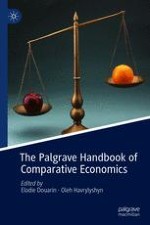2021 | OriginalPaper | Buchkapitel
7. The World’s First Meritocracy Through the Lens of Institutions and Cultural Persistence
verfasst von : James Kai-Sing Kung
Erschienen in: The Palgrave Handbook of Comparative Economics
Verlag: Springer International Publishing
Aktivieren Sie unsere intelligente Suche, um passende Fachinhalte oder Patente zu finden.
Wählen Sie Textabschnitte aus um mit Künstlicher Intelligenz passenden Patente zu finden. powered by
Markieren Sie Textabschnitte, um KI-gestützt weitere passende Inhalte zu finden. powered by
